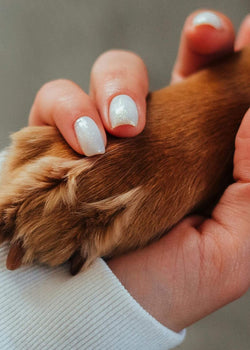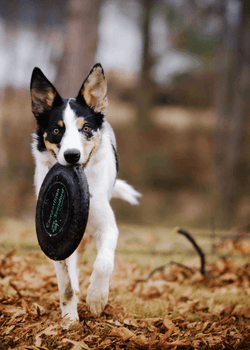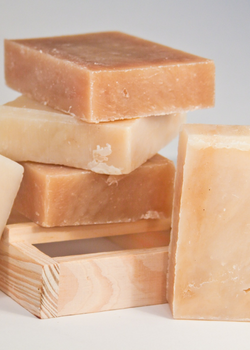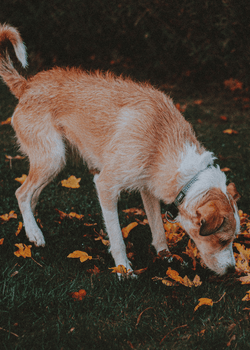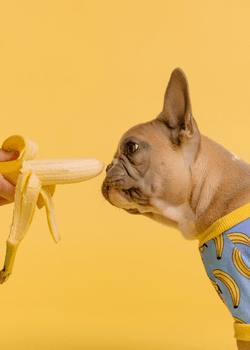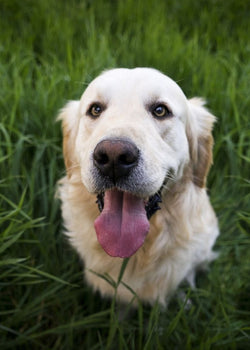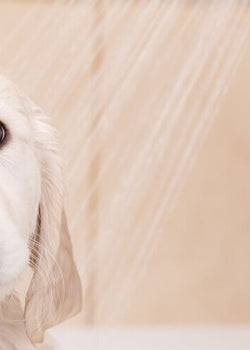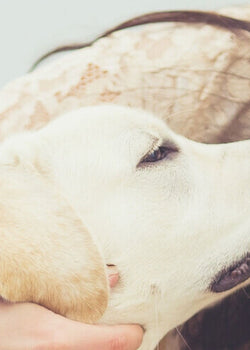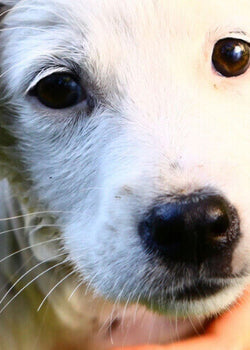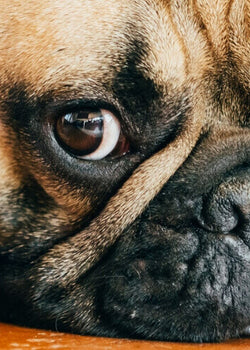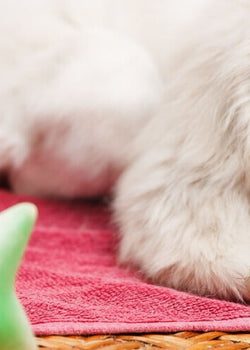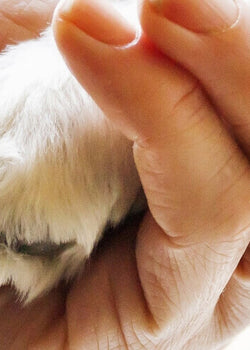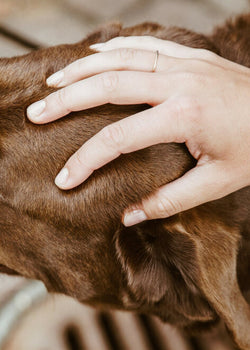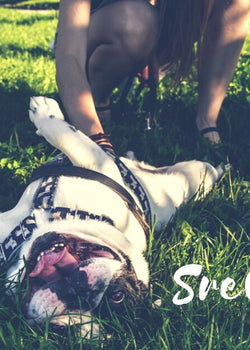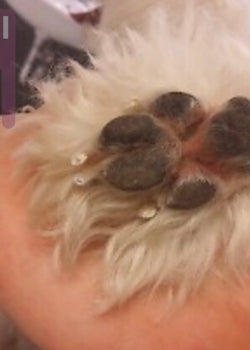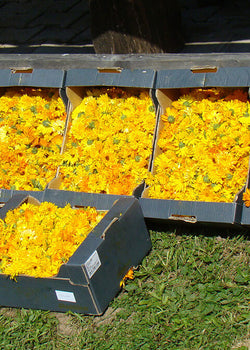Fruits and vegetables for the dog
Are you wondering which fruits and vegetables are suitable for your dog? Have you ever given him something that caused him digestive problems and you don't want that to happen again?
Dogs have a different digestive system than humans. This means that some foods that are completely safe and healthy for us can be harmful or even very dangerous for dogs.

It's not unusual to want to offer your dog table scraps or share your favorite snacks with him. And that's why it's so important to learn which fruits and vegetables dogs can eat.
We have prepared a list of fruits, vegetables and other foods that are often found in our kitchens. Read on to find out which fruits, vegetables and other foods are safe to share with your pet in moderation and what to avoid.
VEGETABLES FOR DOGS: safe and harmful

As dog owners, we usually like to offer our canine friend some leftovers from a meal, or toss in a piece of vegetable as a treat while cutting and preparing lunch. That's why it's important to know which vegetables are safe for dogs and which can harm them, because no one wants to cause problems for their pet.
SAFE vegetables for dogs

Carrots
Carrots are a low-calorie treat that is great for your dog's teeth. In addition, carrots contain a lot of fiber, beta carotene and vitamin A. Carrots can be eaten raw or cooked. Cut it into small pieces that prevent the dog from choking.
Pumpkin
Pumpkin is an excellent source of fiber, beta-carotene and vitamin A – just like carrots. In addition, pumpkin can help with digestive problems. Both fresh and cooked pumpkin are great treats for dogs, without added spices, of course.
Green beans
Green beans are a source of protein, calcium, vitamin K and iron. Raw beans and cooked beans are great for your dog as they are filling and low in calories. Remember to serve only beans without added salt or other spices.
Brussels sprouts
Brussels sprouts are packed with nutrients and antioxidants that are great for both humans and dogs. However, feed Brussels sprouts in small amounts to your dog as it can cause 'wind'.
Green
Greens can easily be added in moderate amounts to your dog's diet or as a treat, because in addition to vitamins A, B and C, they also contain nutrients necessary to promote a healthy heart and those that are important in the fight against cancer. In addition, green is also known to freshen a dog's breath.
Peas
Dogs can eat peas. It is a common ingredient in many types of dog food. Not only does it taste delicious to dogs, but it is also low in calories and high in nutrients, making it healthy for your dog.
Feed your dog only fresh or frozen peas, not canned. Canned peas often contain salt, which is harmful to dogs in large quantities.
Broccoli
Dogs can eat raw and cooked broccoli in moderation. Broccoli is a low-calorie vegetable that contains large amounts of many nutrients, making it a healthy snack for your dog.
Broccoli contains isothiocyanates - compounds that can irritate the digestive system if consumed in excess. So, make broccoli an occasional snack for your pet.
Sweet potatoes
Sweet potatoes are a safe and healthy dog food that can be eaten in moderation. Sweet potatoes are easy for dogs to digest and are rich in vitamin A, which is important for eye health and the immune system.
You can add a little sweet potato to your dog's regular food or offer it as a treat.
Potatoes
Dogs can eat plain boiled potatoes. You should never feed raw potatoes to your dog. Raw potatoes contain solanine, a compound toxic to dogs.
Potatoes can only be fed to the dog in small quantities or occasionally, as due to the high carbohydrate content, dogs can gain weight if they are eaten in large quantities.
Harmful vegetables for dogs

Onion
Dogs should not eat onions. Onions, leeks and chives are part of a family of plants called Allium, which is poisonous to most pets, especially cats.
Eating onions can cause vomiting, diarrhea, stomach pain and nausea in your dog. Onion poisoning can be very serious.
It is worth noting that all forms of onions are poisonous to dogs - even juice and processed onions such as onion powder.
Garlic
You should never feed garlic to your dog. Garlic contains compounds toxic to dogs.
Eating garlic can cause symptoms such as vomiting and diarrhea in dogs. In severe cases, dogs may even need a blood transfusion if they consume large amounts of garlic.
Therefore, it is important to avoid feeding your dog garlic, even in small amounts.
Mushrooms
It is better to avoid feeding mushrooms to your dog. Some mushrooms can be poisonous to dogs. Champignons from the store are in principle also safe for dogs, but it is still better to avoid them.
FRUITS FOR DOGS: safe and harmful

Dogs can eat small amounts of fruit (due to the high sugar content) that can be used as treats.
If you give your dog fruit, it is important to remove the pips (even from, for example, an apple). Paws contain cyanide, which is kept in your pet's system for years and can lead to a worse feeling over time.
SAFE fruit for dogs

Apples
Apples are an excellent source of vitamins A and C, as well as fiber, which can benefit your dog's digestive system.
But never forget to remove the seeds and core first.
Blueberries
Blueberries are a rich source of antioxidants that help fight diseases such as cancer and provide a large amount of vitamins, minerals and fiber. This can only benefit your dog's health.
In addition, blueberries are also low in calories and small, making them a great healthy treat.
Strawberries
Strawberries are healthy for dogs as they are low in calories but high in nutrients, antioxidants and fiber.
Cranberries
Both fresh and dried cranberries are safe for dogs – in small amounts. With cranberries, moderation is important (as with any treat), as otherwise they can cause stomach problems.
Bananas
Bananas contain a lot of fiber and a lot of vitamins and minerals. Some also claim to help relieve nausea in dogs, but this has not been scientifically proven.
Bananas have a high sugar content, so it is important to give them to your dog only in small amounts. You can save a little of it and mix it with your dog's regular food or give him a slice or two as a treat from time to time.

Mango
Mango is very healthy for dogs in small quantities, as it contains many vitamins and minerals in addition to a lot of fiber. Peel the mango before offering it to your dog, as the peel is difficult to digest.
A coconut
Coconut meat and oil can be a great occasional treat, as they benefit the dog's skin and coat.
It is important to note that coconut oil is high in fat and calories, so the dog should consume it in very moderate amounts.
Blackberries
Fresh or frozen blackberries are a healthy food for your dog. They have few calories and are rich in vitamins, minerals, antioxidants, fiber.
If your dog likes blackberries, you can offer them as a treat every day.
Raspberries
They are low in sugar and calories, but full of fiber and vitamin C. Raspberries are especially good for older dogs because they have anti-inflammatory properties that can help with aging joints.
Watermelon
Watermelon is full of vitamins A, B-6 and C and potassium. It contains 92% water, so it is a great choice on hot days to keep your dog hydrated.
The only thing to remember is that you have to remove the skin and legs, and the meat itself is completely safe for dogs.
HARMFUL fruit for dogs

Grapes and raisins
Grapes are very harmful to dogs, as are raisins. Even small amounts of this fruit can cause vomiting and diarrhea or even kidney failure.
Avocado
Dogs should not eat avocados. This is because it contains a toxin known to be very toxic to dogs. It can cause fluid to build up in the lungs and chest, which can cause breathing problems and lack of oxygen.
Cherries
Dogs can eat fresh pitted cherries in moderation. The fleshy part of cherries is not poisonous, but the pulp contains a lot of cyanide, which interferes with cellular oxygen transfer. This means that your dog's blood cells cannot get enough oxygen.
Cherries can also cause stomach problems and diarrhea if they are eaten too much. Limit it to only eo il two cherries.
Lemons and limes
Lemons and limes can cause indigestion in dogs, such as vomiting and diarrhea. With larger amounts, even more severe symptoms can occur, such as muscle tremors, difficulty walking and liver failure.
OTHER FOOD: What can my dog eat and what not?

Can dogs eat eggs ?
Eggs are good for dogs as they are an excellent source of protein. However, it is necessary to cook the eggs, as feeding raw eggs to your dog can lead to salmonella poisoning. Feed your dog eggs in moderation, as the yolk contains a lot of fat and can cause weight gain.
Can dogs drink milk ?
It is best not to give milk to dogs. Dogs do not produce enough lactase, which is needed to digest the lactose in milk.
But the signs that tell you that your dog does not tolerate milk are gas, bloating and diarrhea.
Can dogs eat chocolate ?
Dogs should not eat chocolate as it contains theobromine. This is a highly toxic compound for dogs that also includes caffeine and is found in cocoa.
Even in small amounts, dark chocolate can be very harmful to dogs, as it contains a high percentage of cocoa.
If ingested, it can cause vomiting and diarrhea, and in more severe circumstances, liver failure.
If your dog has eaten chocolate, look out for the following signs:
- Restlessness
- Vomiting
- Diarrhea
- Increased breathing rate
- Increased heart rate
- Increased temperature
- Attacks
- Muscle stiffness
If your pet shows any of these symptoms, contact your veterinarian immediately.
Can dogs eat cheese ?
Since milk is more difficult for dogs to digest, it is recommended not to include cheese in the dog's diet.
Can dogs eat peanut butter ?
Peanut butter is a healthy and safe treat for dogs in small amounts, as peanut butter contains a lot of fat and calories.
If you buy peanut butter for your dog at the store, make sure you buy unsalted, as salt can harm your dog.

Can dogs eat bread ?
Never feed raw dough to your dog, as the yeast can cause digestive problems. Bread can be eaten, but little, as it contains a lot of carbohydrates, which can cause the dog to gain weight.
Can dogs eat rice ?
Rice is a great simple carbohydrate to feed your dog. Even if the puppy feels sick or has stomach problems, you can feed it with rice, as only this is light and easily digestible.
Can dogs eat nuts ?
It is important to be very careful with nuts, as some such as nutmeg and macadamia are very toxic to our dogs.
Edible nuts for dogs include peanuts and cashews, but if we give them to our dog it is very important to know that they should not be salted. At the same time, do not forget that nuts contain a lot of fat, so only offer them some.
Are you interested in anything else? Maybe we didn't mention that vegetable or fruit that you're not sure if your dog can eat?
Ask in the comments and we will be happy to answer.

